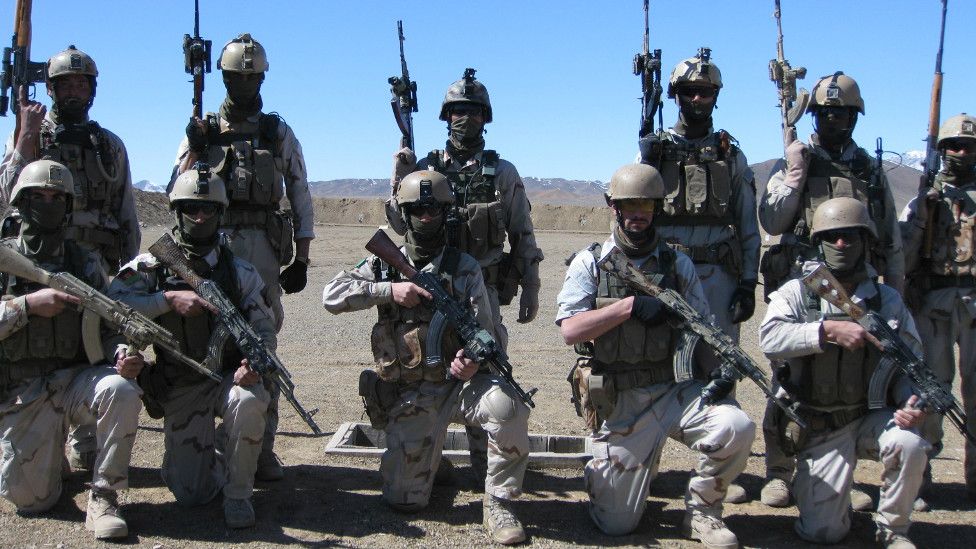In pictures: Afghan army's elite special forces
- Published

Afghan forces are assuming complete responsibility for security across the country. The government has set up units of special forces within the army and police to deal with high profile insurgent attacks on key targets. These units are made up of 10,000 well-trained and well-equipped personnel and are deployed in 19 provinces.
The identities of those who serve in the special forces are generally kept secret and their operations are rarely reported by the media. Malyar Sadeq Azad of the BBC Afghan Service was one of the few journalists allowed to visit one of their bases in Logar province.
The need for such highly-trained forces has been repeatedly demonstrated. Special forces based at Logar played a key role in tackling heavily-armed militants who recently seized a building near the main airport in Kabul.
Correspondents at the scene said that Afghan special forces dealt with the situation with no help from international troops.
Some in the special forces have been trained in military academies abroad including Sandhurst in the UK.
The 333 commando unit is based in Logar and is becoming increasingly well known for its success in nullifying insurgent attacks. Last year commandos from this unit repulsed several group suicide strikes in Kabul.
Female participation in the special forces is essential. They are particularly useful when conducting searches of households where women are more at ease being questioned by other Afghan women.
Afghan police commanders refer to members of the special forces as "unknown soldiers". One of their key specialities has become the fight against group suicide attackers.
It is not difficult to recognise members of the special forces - they have access to better facilities, better equipment and are better paid. They are certain to play a key role in Afghanistan after the Nato withdrawal in 2014.